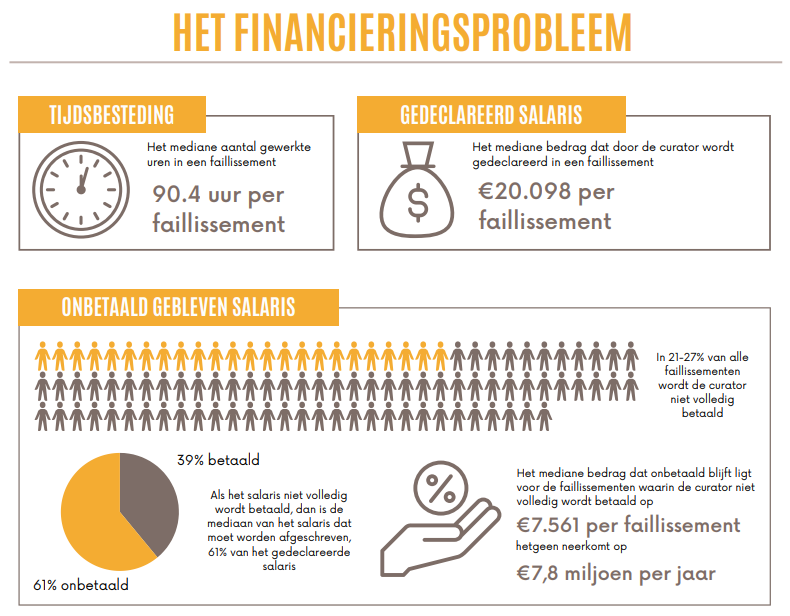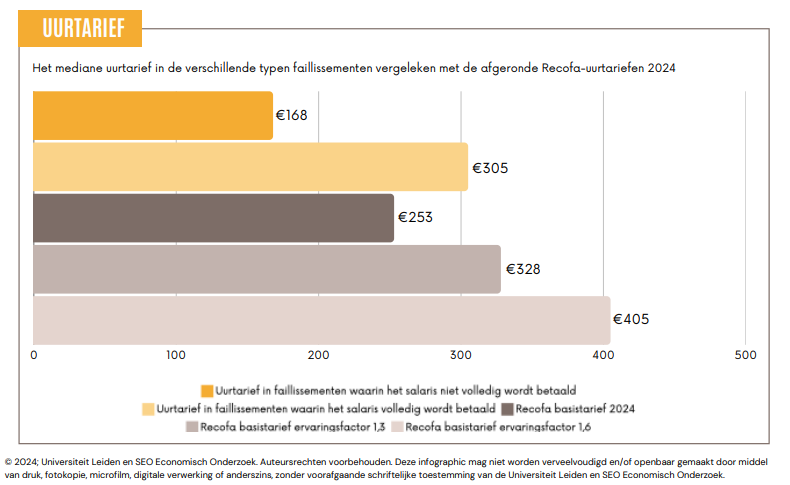
Bankruptcy trustees often lack the financial resources needed to tackle fraud
image: Yunus Tug via Unsplash
In bankruptcies, proceeds are often too low to pay the trustees and fraud often occurs. This lack of resources means that fraudsters can get off scot-free, according to research by Leiden University and SEO Economic Research.
The research, conducted by Reinout Vriesendorp, Peter van der Zwan, Harold Koster and Jessie Pool, was prompted by problems long identified by the Supreme Court in the Netherlands and among insolvency practitioners. Namely, that bankruptcy trustees are appointed in cases where there are not enough assets to cover the cost of their work. These are known as ‘empty estates’. ‘These empty estates arise when a bankruptcy reveals that there are no or hardly any assets to distribute,’ explains Jessie Pool, Associate Professor of Insolvency Law. ‘A trustee is also appointed in that type of bankruptcy, and since the estate has no assets, they have to do the work for free.’
Large shortfalls in payments to trustees
The study, commissioned by the Ministry of Justice and Security and its Research and Data Centre (WODC), shows that in over 20% of bankruptcies, the trustee is not paid in full. The total amount of unpaid salaries averages almost eight million euros a year. Why the estates are empty is hard to say, according to Jessie Pool: ‘Sometimes it’s due to fraud prior to the bankruptcy, but perhaps directors also continue doing business for too long and only file for bankruptcy when the money has run out entirely.’
Bankruptcy trustees perform a number of standard tasks:
- Taking an inventory of a company's assets and debts;
- Taking an initial inventory of any irregularities;
- Communicating with directors and staff.
This involves around 20 hours of work on average in company bankruptcies. The under-compensation often results in trustees not having the time to investigate irregularities and possible fraud. However, since 2017 they are required to do so by law.
The figures presented below (in Dutch) are the average time spent by bankruptcy trustees, the average fee charged, the amount that remains unpaid and average hourly rates.
What options do trustees have?
Jessie Pool says that trustees can investigate suspected fraud themselves, by examining the company’s books or speaking to employees. They can also engage a third party, such as a forensic accountant. Pool: ‘When there’s no money in the estate, it becomes difficult for the trustee to spend a lot of time dealing with these irregularities. On top of that, investigating irregularities doesn’t always mean that something will turn up.' Previous research by Jessie Pool into bankruptcies in the Netherlands confirmed this, stating that external parties are not always willing to do work for free and not all trustees address irregularities.
Recommendations
The researchers give a number of recommendations to address the issue of the payment of trustees. These combine various approaches that are considered most appropriate and fair. Multiple stakeholders are required to contribute so that the burden does not fall on a single party. These recommendations are:
- Threshold for declaring bankruptcy
This qualitative threshold could reduce the number of empty estate bankruptcies. Conducting a short, standardised global examination in bankruptcy filings can help assess whether bankruptcy should be declared for lack of financial resources.
- Guaranteed basic fee for trustees
Set a basic guaranteed fee of 20 hours per bankruptcy for standard work to be performed by bankruptcy trustees.
- Better financial support for trustees to conduct fraud investigations
This can be done by extending the scope of the existing Guarantee Scheme for bankruptcy trustees to include dealing with irregularities where this does not clearly increase the resources in the estate, as is currently required.
‘Ultimately, it’s about trustees having enough money to get paid for the work they are required to do. We simply can’t expect that trustees will carry out their statutory tasks for nothing’, argues Pool. ‘Based on the research, we believe multiple interventions are needed to achieve this. One solution isn’t enough, we really need the package of measures.'
For more information on the recommendations arising from the research, see this infographic.


